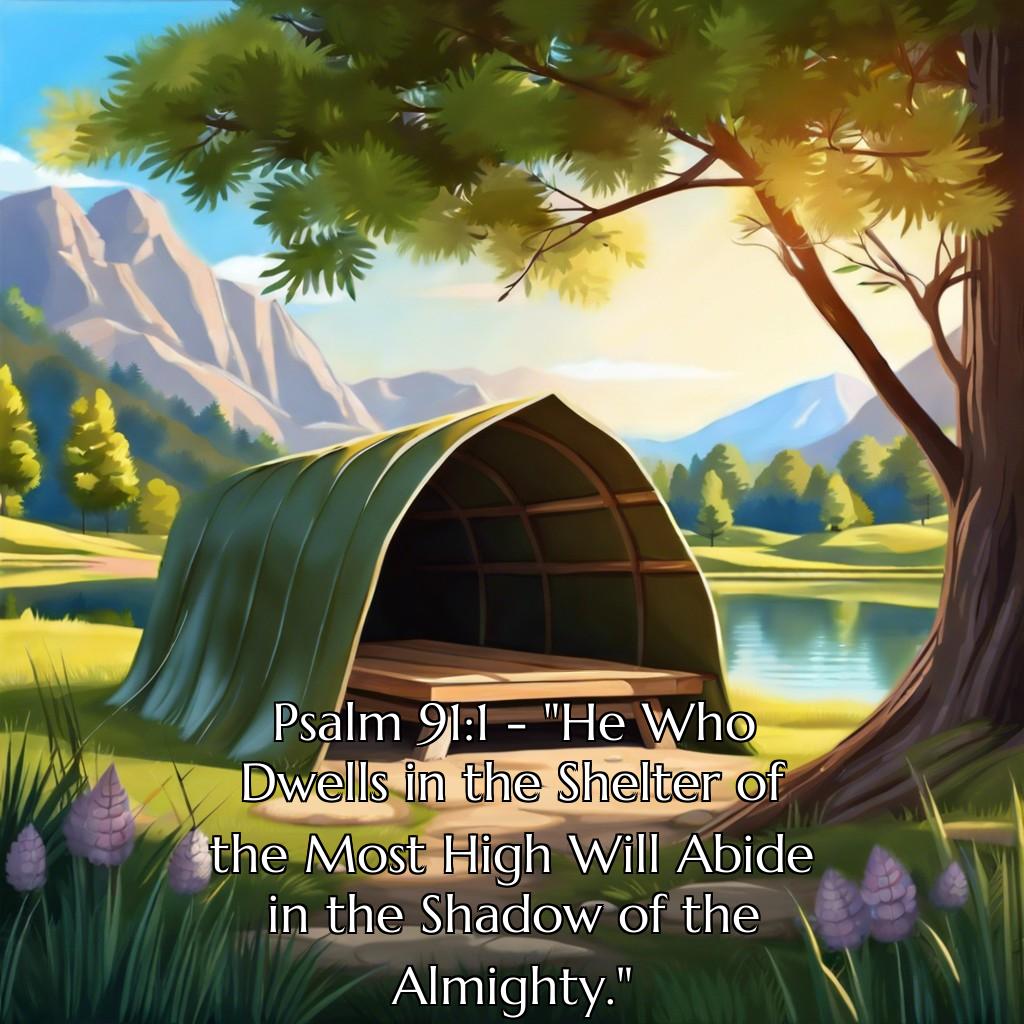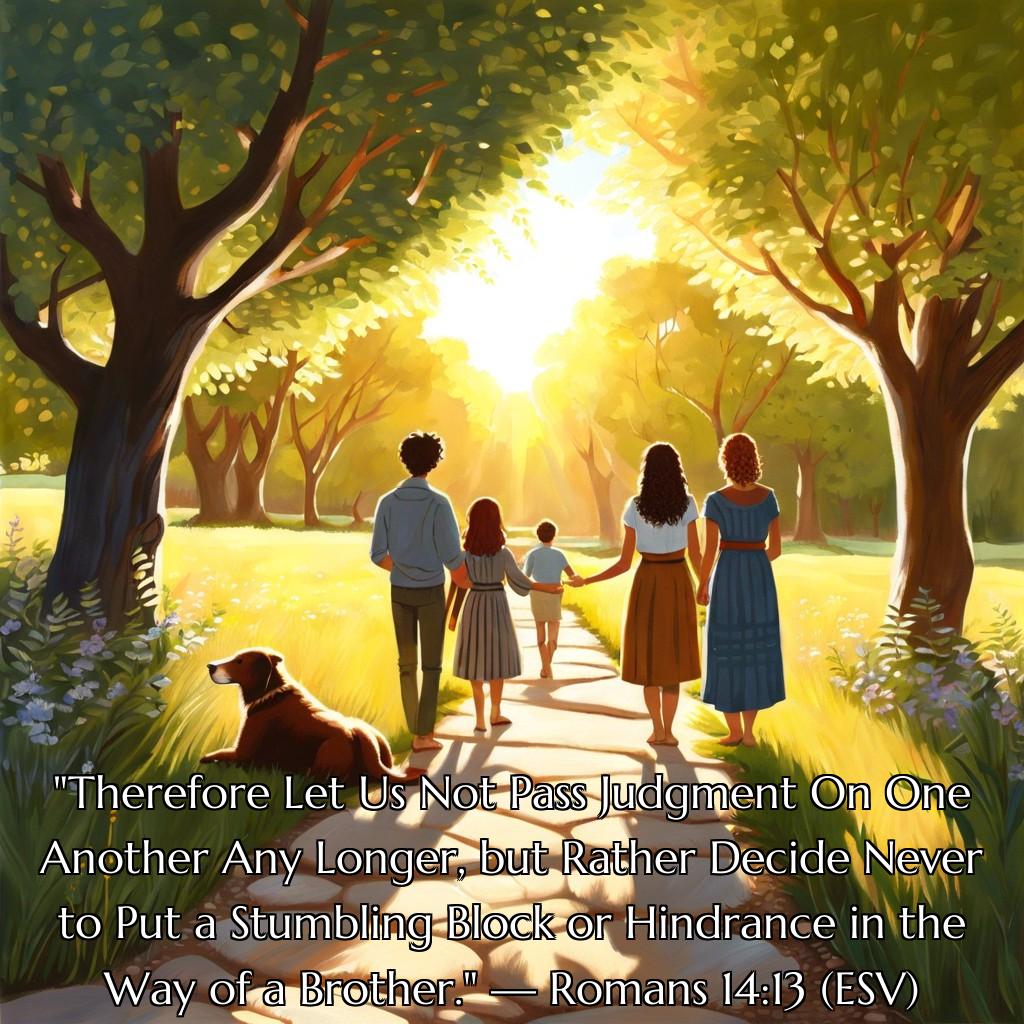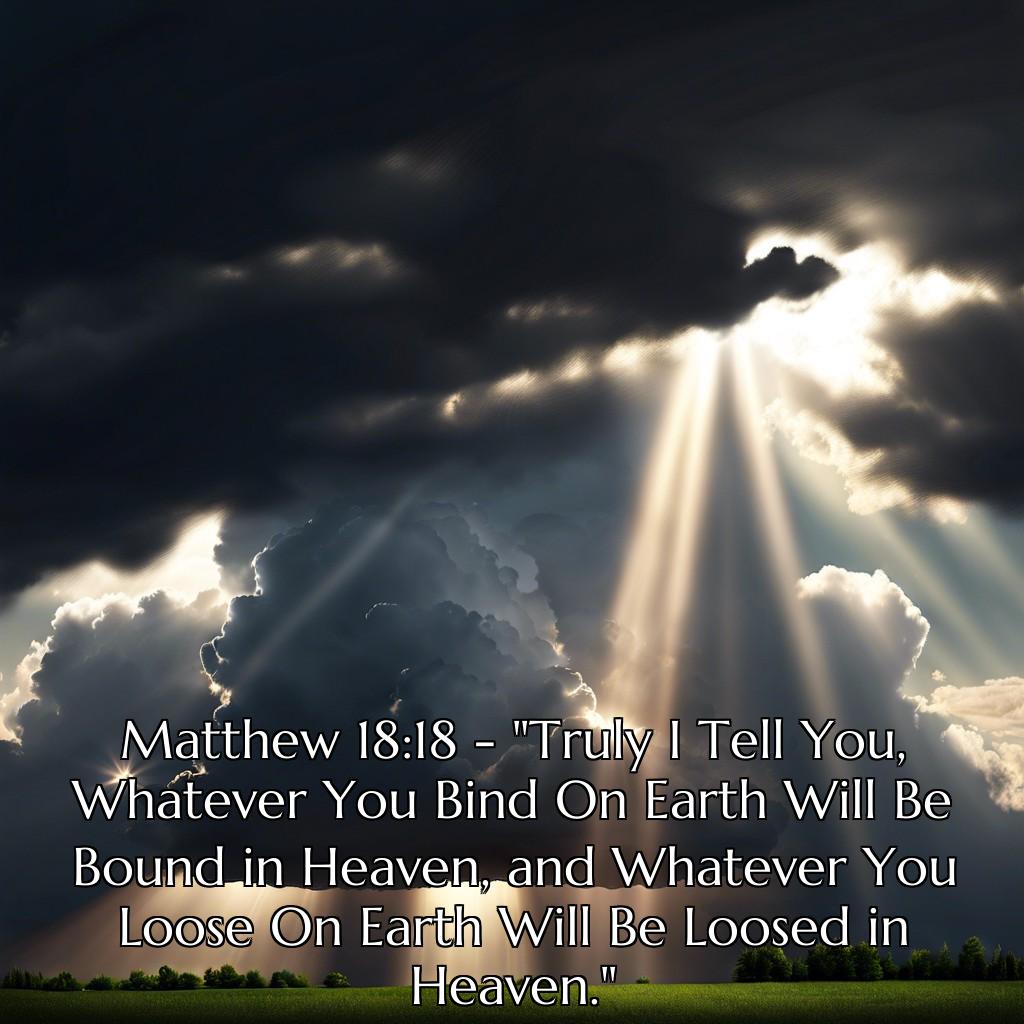This article lists and explains ten bible verses about creation for a better understanding of God’s handiwork.
There’s an innate human curiosity about the beginning of everything—the universe, the earth, and our very existence. The Bible offers profound insights on creation that unveil God’s omnipotence and artistry. This article delves into some of the most significant Bible verses about creation, providing meaningful interpretations that highlight God’s sovereign role in crafting all that exists.
Genesis 1:1: “In the Beginning, God Created the Heavens and the Earth.”
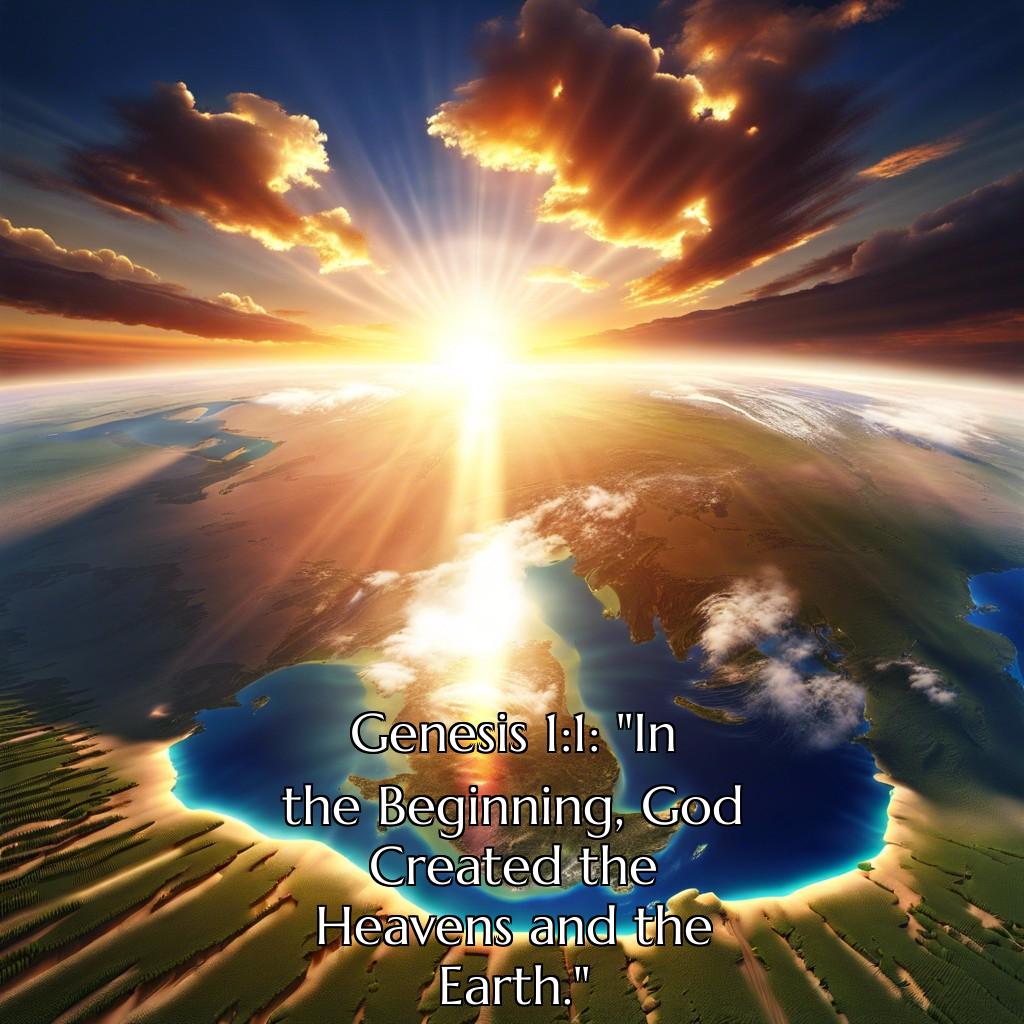
Genesis 1:1 is the opening statement of the Bible, setting the stage for everything that follows. It speaks powerfully about God’s sovereignty and creative power.
This verse lays the foundation for understanding the nature of God as eternal and omnipotent. It implies that God existed before time and space.
It emphasizes the intentionality behind creation. The heavens and the earth didn’t come into existence by chance but were a deliberate act of God.
The phrase highlights the scope of God’s creation, encompassing the entire universe, both visible and invisible realms.
It also introduces the concept of order and purpose. Creation isn’t random; it has a beginning initiated by a loving Creator.
Genesis 1:27: “So God Created Mankind in His Own Image, in the Image of God He Created Them; Male and Female He Created Them.”
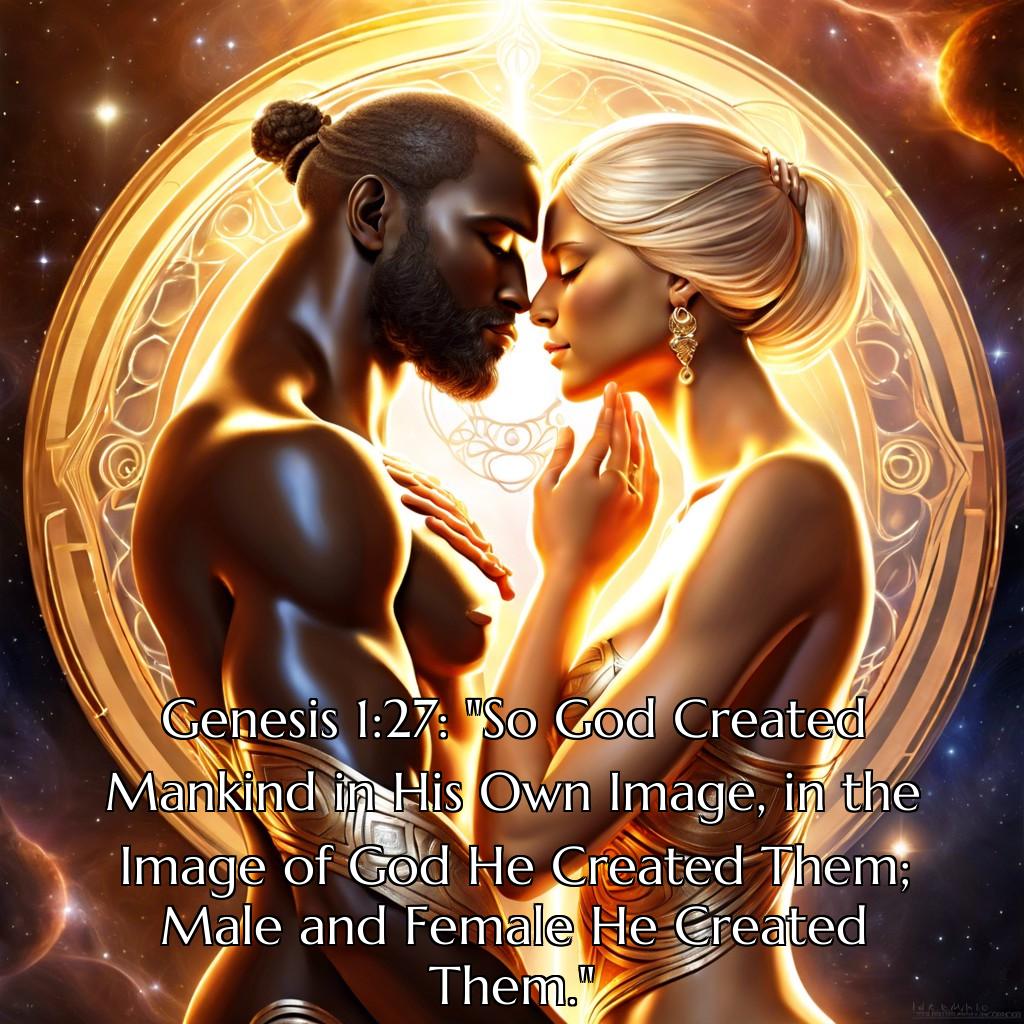
This verse highlights the unique relationship between God and humanity. It emphasizes that humans are distinct from the rest of creation, bearing God’s image. Here’s a closer look at its concepts:
- Being made in God’s image means humans reflect certain attributes of God, such as rationality, moral capacity, and creativity.
- It underscores the intrinsic value and dignity of every person, regardless of gender, race, or status.
- The creation of both male and female highlights the equality and complementary nature of the genders in God’s design.
This verse invites reflection on the profound nature of human identity and purpose, rooted in God’s creative act.
Psalm 19:1: “The Heavens Declare the Glory of God; the Skies Proclaim the Work of His Hands.”
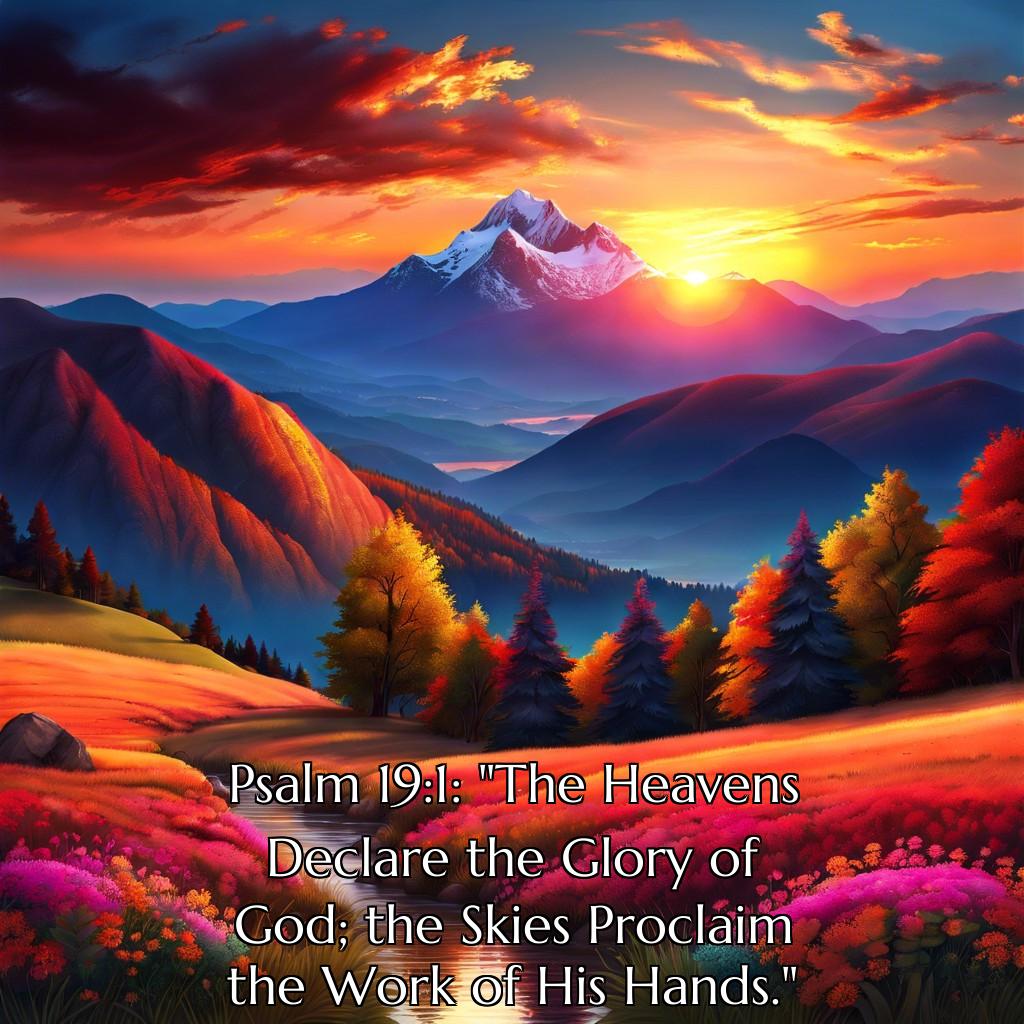
This verse vividly illustrates how creation itself is a testament to God’s grandeur and skill. Observing the heavens and skies should inspire awe and reverence for the Creator’s craftsmanship.
- The grandeur of the heavens highlights God’s power and majesty.
- The skies, with their changing states and colors, reflect God’s creativity and constant presence.
- Nature serves as a universal language, communicating God’s greatness to all people, regardless of their background.
By simply looking up, we are invited to witness the remarkable work of His hands, encouraging us to remember and honor the Creator in our daily lives. This verse beautifully prompts us to appreciate and reflect on the world around us as a continuous praise of God’s glory.
Isaiah 45:12: “It Is I Who Made the Earth and Created Mankind On It. My Own Hands Stretched Out the Heavens; I Marshaled Their Starry Hosts.”
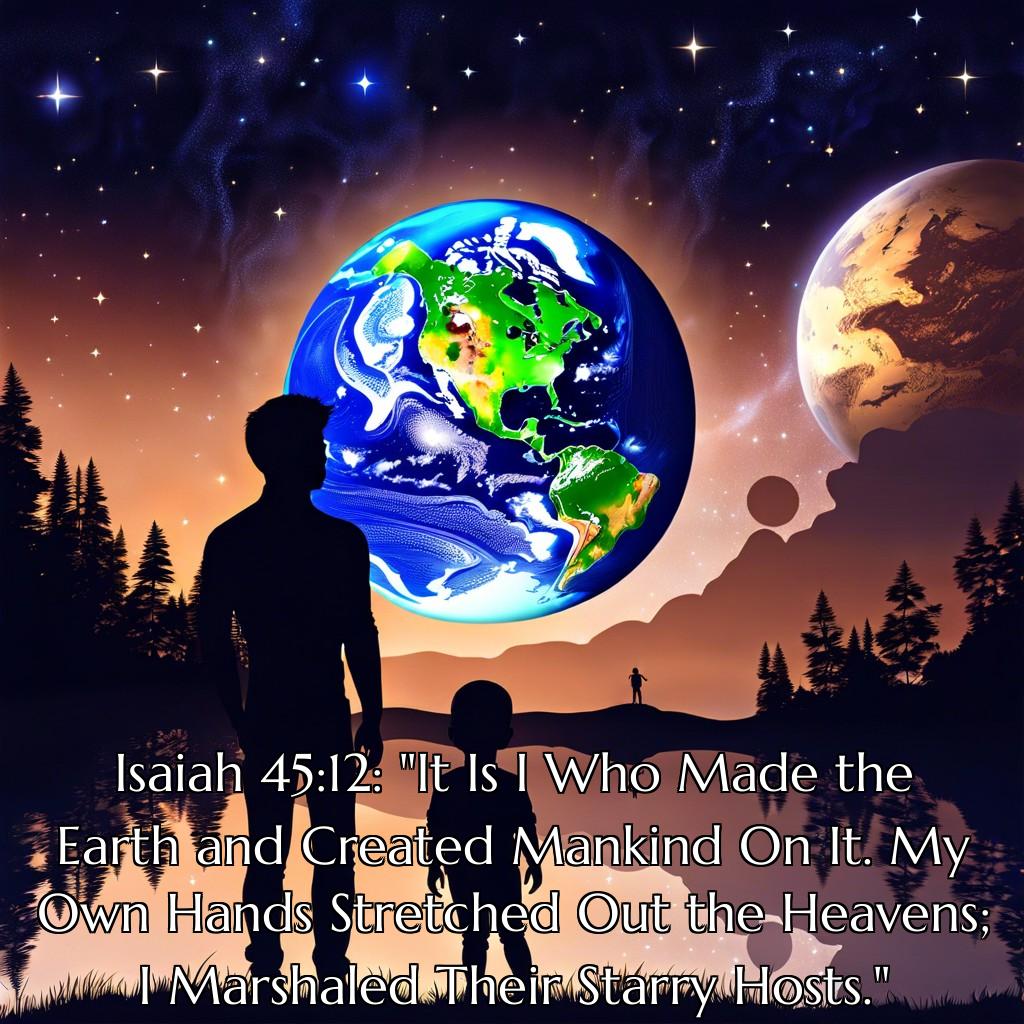
Isaiah 45:12 is a powerful declaration of God’s sovereignty and creative power. This verse emphasizes several key points:
- Divine Creation: God asserts He is the maker of the earth and humanity. This statement underlines His supreme authority over all creation.
- Personal Involvement: The phrase “My own hands” indicates a personal, deliberate act rather than a distant, impersonal force. God personally fashioned the heavens and the earth.
- Cosmic Order: “I marshaled their starry hosts” shows God not only created the stars but also organizes and sustains them. The universe operates under His command.
- Human Significance: By creating mankind, God establishes humanity’s special place in creation. We are part of His grand design and purpose.
Reflect on these points to understand the unique, hands-on role God plays in the existence and maintenance of all that is.
John 1:3: “Through Him All Things Were Made; Without Him Nothing Was Made That Has Been Made.”
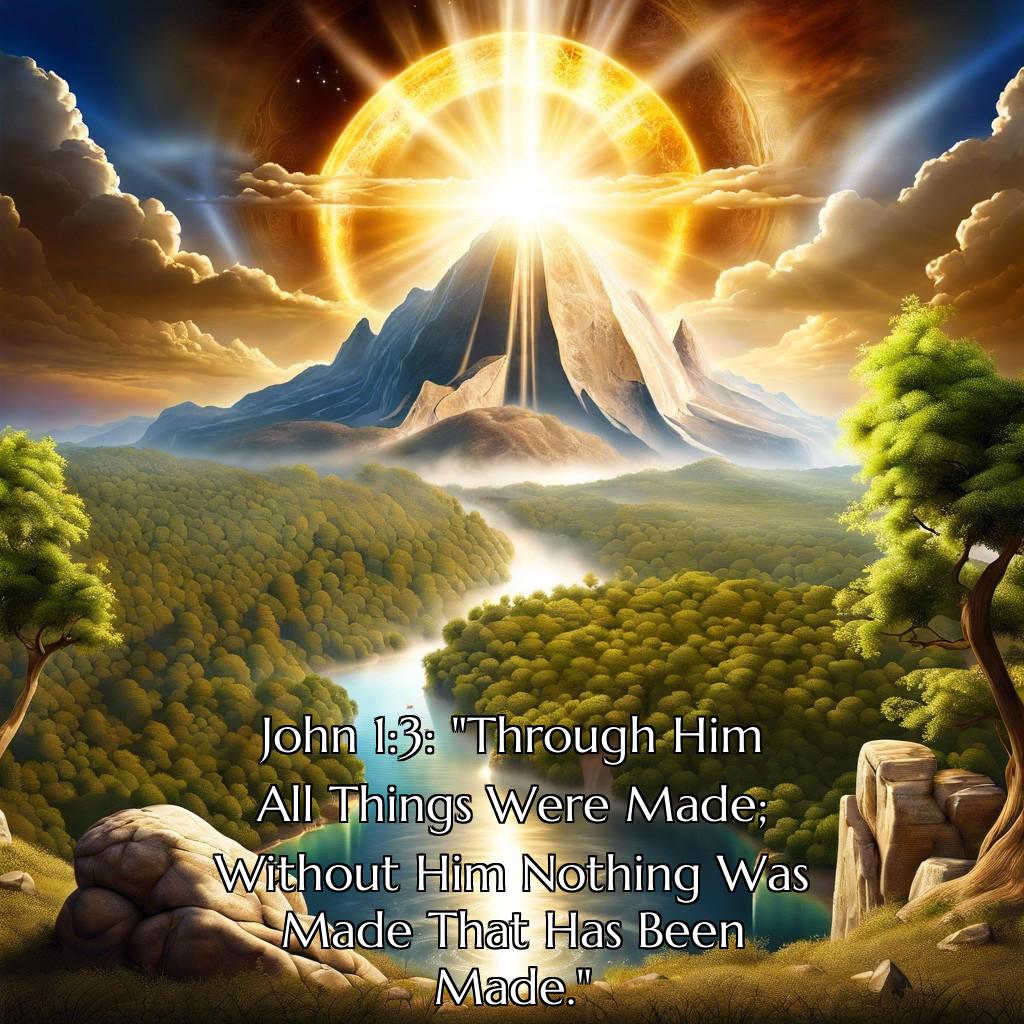
This verse from John emphasizes the central role of Jesus in creation. Here are some points to consider:
- Everything in existence has been created through Jesus.
- This underscores his divine nature and authority.
- It highlights the interconnectedness between Jesus and the Father in the act of creation.
- It serves as a reminder of Jesus’ omnipresence and power.
These points help us understand that Jesus is not only a figure in history but a pivotal part of the very fabric of the universe. His involvement in creation is comprehensive and absolute, reaffirming his divine identity and vital role in all things.
Colossians 1:16: “For in Him All Things Were Created: Things in Heaven and On Earth, Visible and Invisible, Whether Thrones or Powers or Rulers or Authorities; All Things Have Been Created Through Him and for Him.”
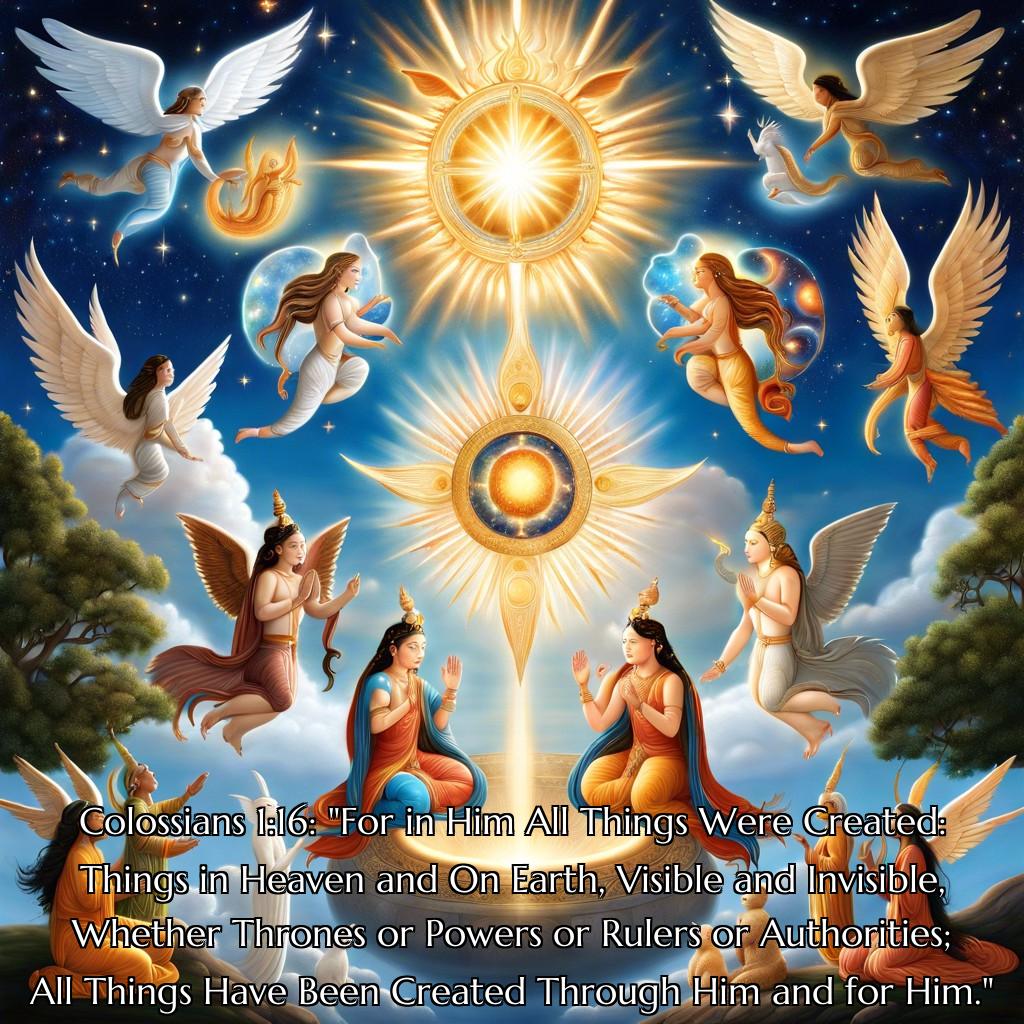
Paul’s letter to the Colossians highlights the supremacy of Christ in creation. This verse states plainly that Christ is the agent of all creation.
Firstly, it asserts that all things, both in heaven and on earth, were created in Him. This includes both what we can see and what we cannot see.
Secondly, it suggests that positions of power and authority—thrones, rulers, dominions—are also established through Him.
Thirdly, everything created was made for Him, pointing to His ultimate purpose and intention in creation.
Christ’s role in creation underscores His divine nature and supreme authority, extending beyond the physical into the spiritual realm. This verse encourages believers to recognize Christ’s central role in the universe and our lives.
Revelation 4:11: “You Are Worthy, Our Lord and God, to Receive Glory and Honor and Power, for You Created All Things, and By Your Will They Were Created and Have Their Being.”
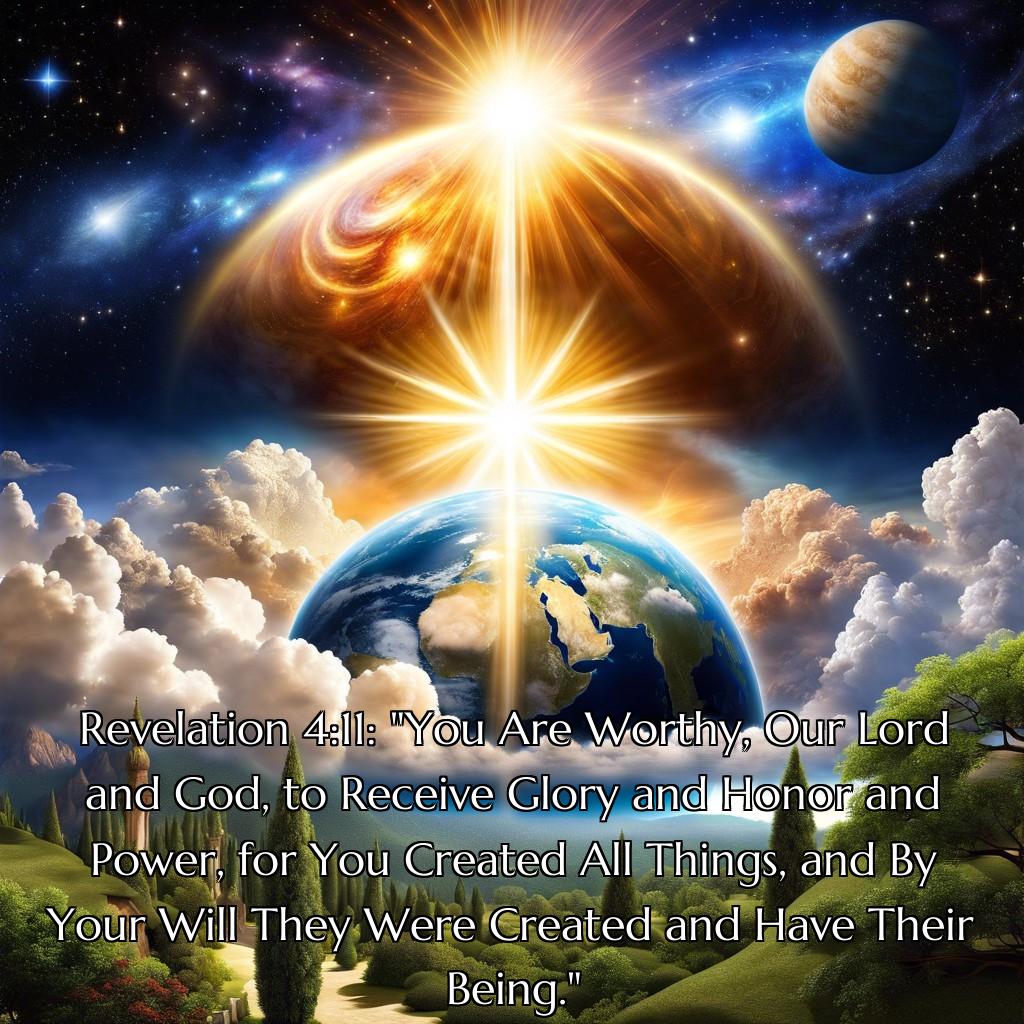
Revelation 4:11 draws our attention to God’s unparalleled worthiness. This verse speaks to several profound truths:
God’s Creation: It emphasizes that God is the creator of everything. Nothing exists without His will and power.
Divine Authority: As the creator, He holds ultimate authority over all creation. Every part of the universe is subject to Him.
Worthy of Praise: The act of creation itself makes God deserving of glory, honor, and power. Worship and reverence are natural responses to acknowledging His creative work.
Purpose and Existence: Not only did He create all things, but their ongoing existence is sustained by His will. It highlights that creation wasn’t a singular event but a continuous act of divine will.
Hebrews 11:3: “By Faith We Understand That the Universe Was Formed At God’s Command, So That What Is Seen Was Not Made Out of What Was Visible.”
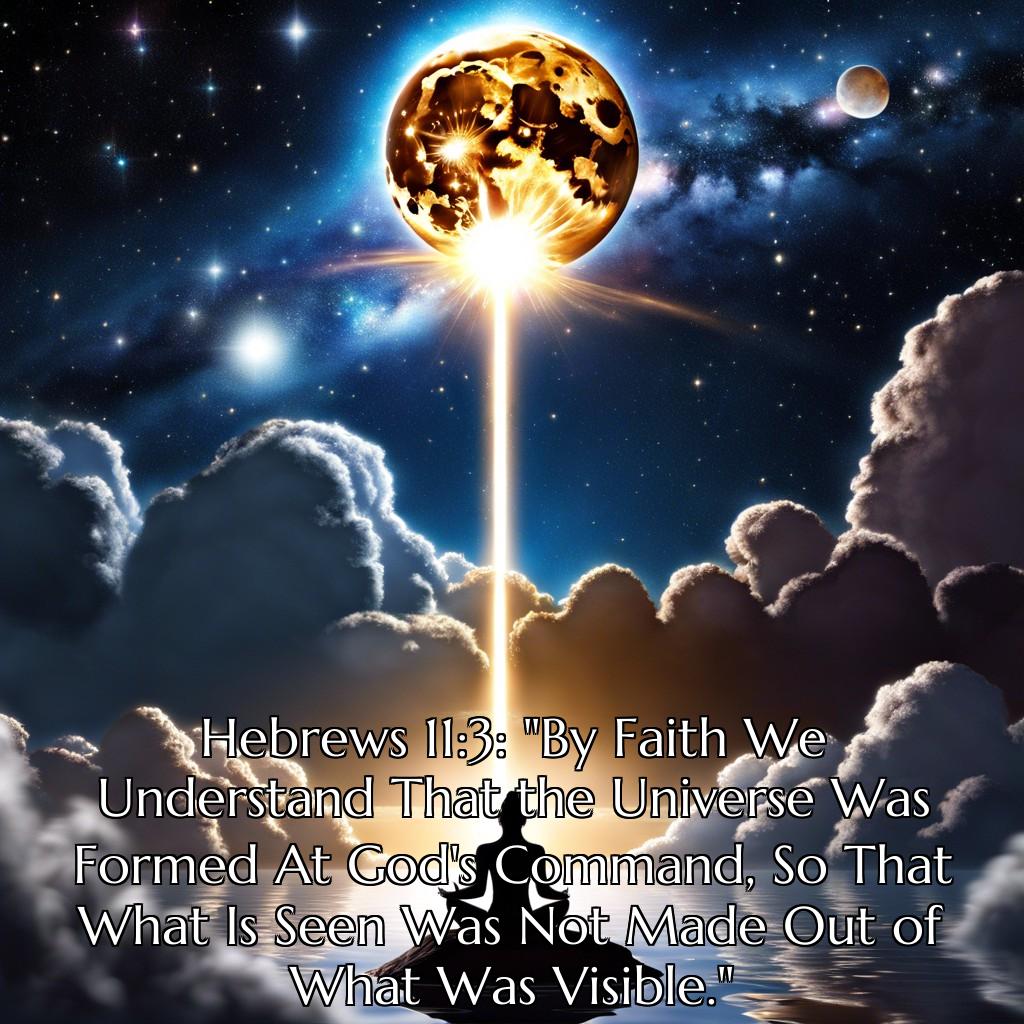
This verse taps into the profound idea that creation is rooted in divine command. It emphasizes faith as a means to comprehend something beyond human visibility and understanding.
First, it highlights the power of God’s word—creation was spoken into existence. This demonstrates the ultimate authority of God over all things.
Second, it speaks to the invisible nature of God’s work. The material world came from what is unseen, suggesting that spiritual truths underlie physical realities.
Third, it links creation with faith. Believing in what cannot be seen or fully understood is foundational to grasping the depth of God’s creative work.
Finally, it reassures believers that God’s power transcends human limitations and perceptions.
Jeremiah 32:17: “Ah, Sovereign Lord, You Have Made the Heavens and the Earth By Your Great Power and Outstretched Arm. Nothing Is Too Hard for You.”
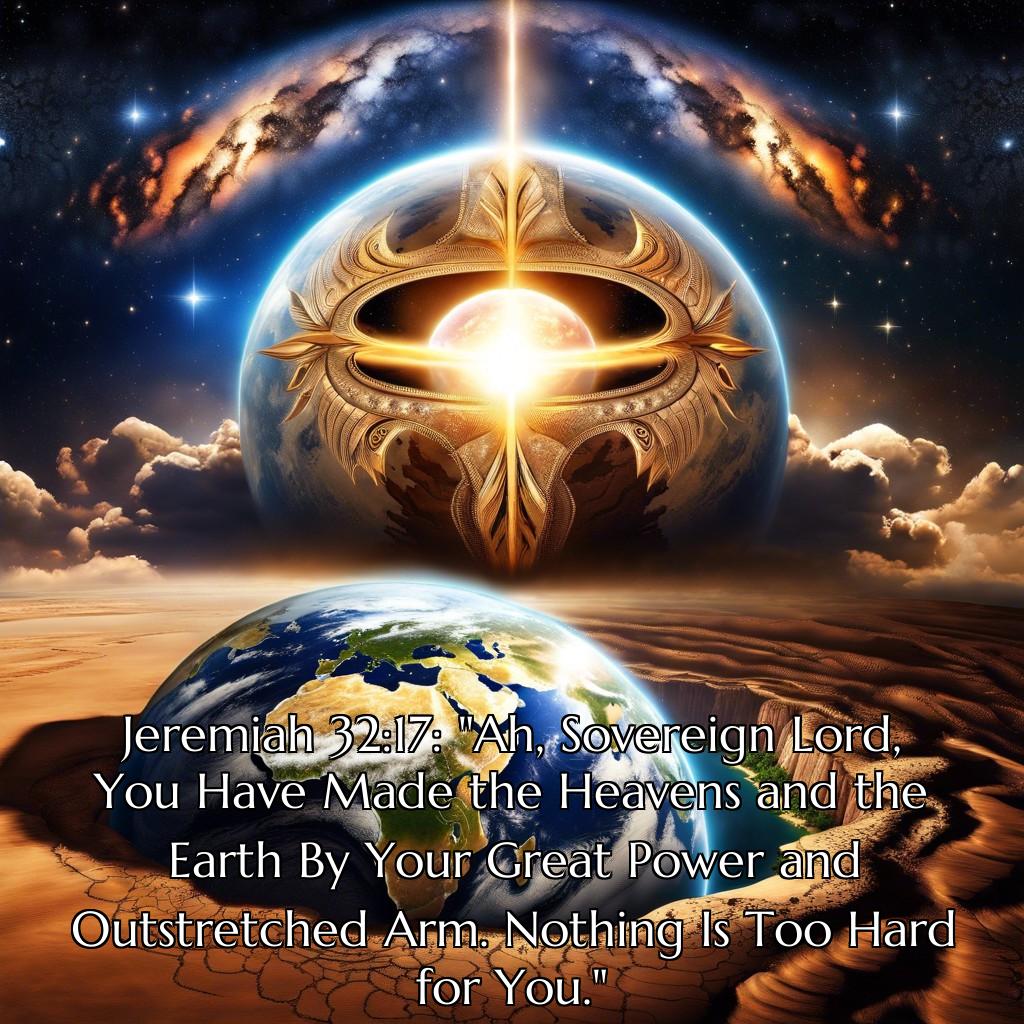
Jeremiah highlights God’s immense power and creative authority here. Several key concepts emerge from this verse:
God as Creator: This acknowledges that the universe’s existence is a direct result of God’s creative work. It underscores His role as the ultimate source of all creation, instilling a sense of reverence.
Divine Power: By referring to God’s “great power and outstretched arm,” the verse emphasizes His ability to achieve what is beyond human capacity and understanding. It serves as a reminder of His omnipotence.
Limitless Capability: The declaration that nothing is too hard for God speaks to His limitless ability to accomplish His will. This can be comforting, reinforcing faith in God’s power to manage any situation.
In essence, Jeremiah 32:17 reinforces the foundational belief in God’s unparalleled creative power and boundless capabilities, encouraging faith and trust in His divine plan.
Nehemiah 9:6: “You Alone Are the Lord. You Made the Heavens, Even the Highest Heavens, and All Their Starry Host, the Earth and All That Is On It, the Seas and All That Is in Them. You Give Life to Everything, and the Multitudes of Heaven Worship You.”
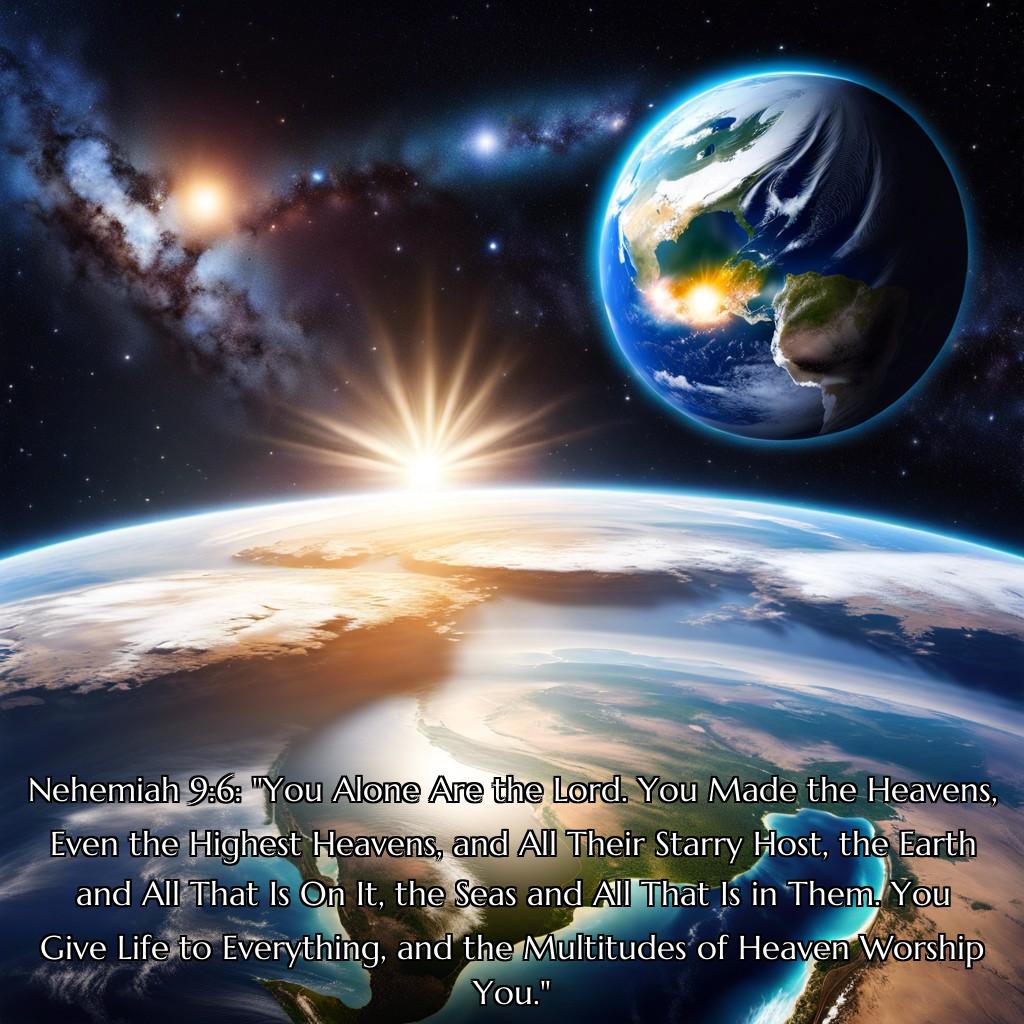
This verse emphasizes God’s unparalleled sovereignty and creative power. It highlights that God alone is responsible for the creation of everything in the heavens and on Earth.
Firstly, it points to the vastness of God’s creation, from the highest heavens to the earth and seas. This underscores God’s omnipotence, making everything that exists a testament to His glory.
Secondly, it reflects on God’s life-giving power. Not only did He create all things, but He also sustains them, giving life to everything. This is an important reminder that life itself is a gift from God.
Lastly, the verse portrays worship as a natural response to God’s creative authority. The multitudes of heaven worship Him, acknowledging His supreme dominion over all creation. This serves as an encouragement for us to join in glorifying the Creator.

